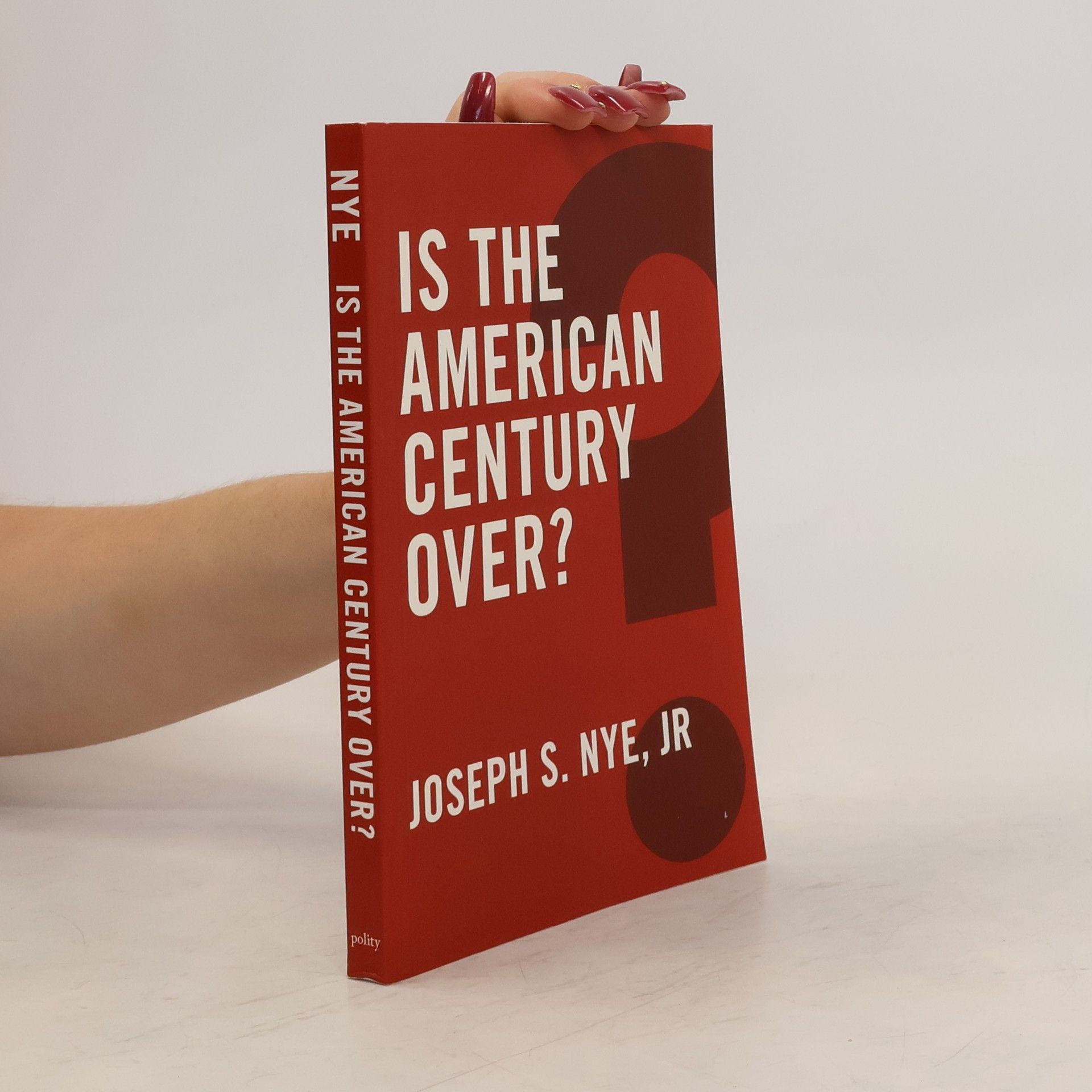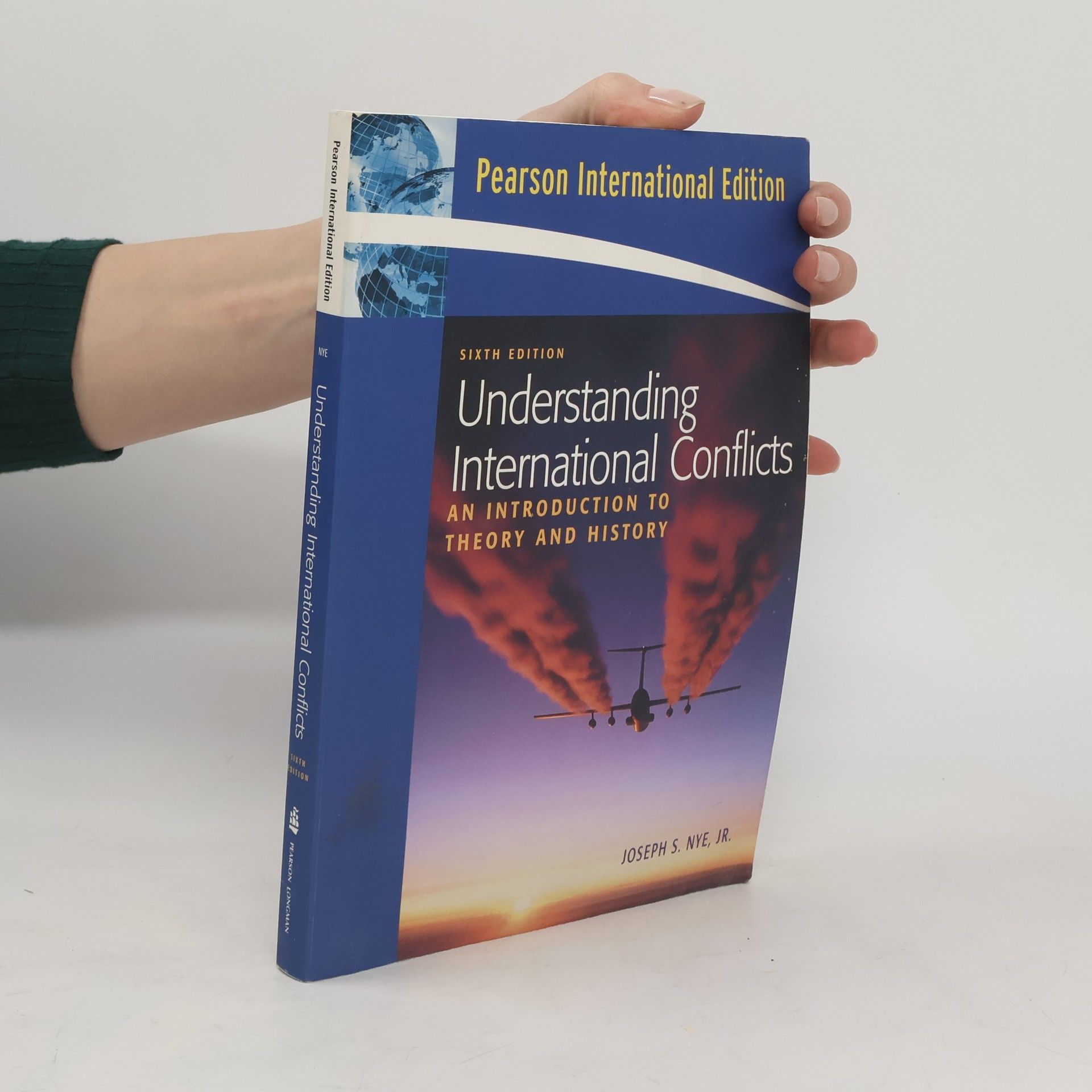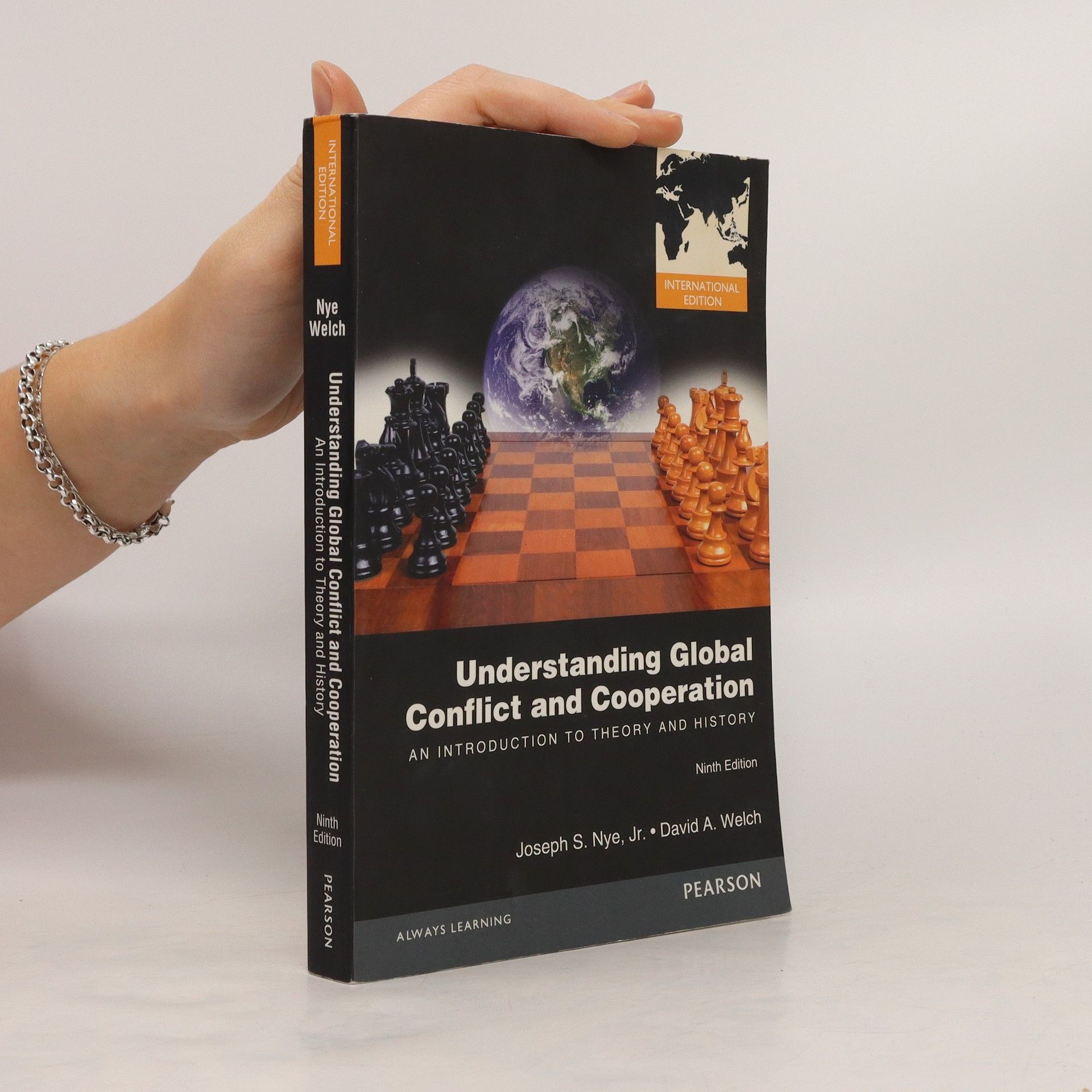Das Paradox der amerikanischen Macht
- 250 Seiten
- 9 Lesestunden
Joseph Nye ist eine Schlüsselfigur der Internationalen Beziehungen, der die Dynamik von Macht und globaler Politik erforscht. Er ist bekannt für die Entwicklung der Theorie des neoliberalen Institutionalismus und von Konzepten wie "Soft Power" und "Smart Power", die unser Verständnis von internationalen Beziehungen und Außenpolitik maßgeblich beeinflusst haben. Seine Arbeit befasst sich damit, wie Staaten und nicht-staatliche Akteure in einer komplexen Welt interagieren, und bietet tiefe Einblicke in die Komplexität moderner globaler Regierungsführung. NYEs Einfluss auf das Fachgebiet ist nachhaltig und festigt seinen Ruf als einer der einflussreichsten Gelehrten der Internationalen Beziehungen.






Smart Power – was heißt Macht in unserer Zeit? Die Koordinaten der Macht haben sich seit dem Ende des Kalten Krieges dramatisch verschoben: Künftig zählen nicht mehr nur militärische Stärke, sondern auch neue Technologien und der intelligente Umgang mit politischen Interessen und Kulturen. Mit diesem Buch liefert Joseph Nye überraschende Antworten auf wichtige Fragen der Geopolitik und der Mittel, mit denen sich strategische Vorteile erringen lassen. Was bedeutet es, im globalen Informationszeitalter des 21. Jahrhunderts Macht auszuüben? Aus welchen Ressourcen wird sich Macht künftig speisen? Die herkömmliche Auffassung besagt, dass sich derjenige Staat mit der größten Militärgewalt durchsetzt. Im Informationszeitalter könnte es jedoch durchaus sein, dass jene Staaten (oder auch nicht-staatlichen Organisationen) am meisten erreichen, die auf andere, 'weichere' und dabei klügere Strategien setzen. Joseph Nye behandelt Themen, die im Zentrum aktueller weltpolitischer Debatten stehen und die um den von ihm geprägten Begriff der 'Smart Power' kreisen. Seine anschauliche Darstellung hilft, eines der wichtigsten Grundprinzipien der Gegenwart näher zu verstehen, und bietet zugleich wertvolle Einsichten in die Kunst der politischen Strategie.
Chapter 1. Are There Enduring Logics of Cooperation in World Politics? Chapter 2. Explaining Conflict and Cooperation: Tools and Techniques of the Trade Chapter 3. From Westphalia to World War I Chapter 4. The Failure of Collective Security and World War II Chapter 5. The Cold War Chapter 6. Post-Cold War Cooperation, Conflict, Flashpoints Chapter 7. Globalization and Interdependence Chapter 8. The Information Revolution and Transnational Actors Chapter 9. What Can We Expect in the Future?
Part of the "Longman Classics in Political Science" series, this book is intended for students of international politics. It contains discussions about Middle East politics, including the Israel-Palestine dispute and the Iraq war, terrorism in general and radical Islamic terrorism in particular, the global politics of oil, and more.
For more than a century, the United States has been the world s most powerful state. Now some analysts predict that China will soon take its place.
What role does ethics play in American foreign policy? The advent of the Trump Administration has raised this from a theoretical question to front page news. Should ethics even play a role, or should we only focus on defending our material interests? In Do Morals Matter? Joseph S. Nye provides a concise yet penetrating analysis of how modern American presidents have-and have not-incorporated ethics into their foreign policy. Nye examines each presidencyduring the American era after 1945 and scores them on the success they achieved in implementing an ethical foreign policy. Alongside this, he also evaluates their leadership qualities, explaining which approaches work and which ones do not.
Joseph Nye coined the term "soft power" in the late 1980s. It is now used frequently—and often incorrectly—by political leaders, editorial writers, and academics around the world. So what is soft power? Soft power lies in the ability to attract and persuade. Whereas hard power—the ability to coerce—grows out of a country's military or economic might, soft power arises from the attractiveness of a country's culture, political ideals, and policies. Hard power remains crucial in a world of states trying to guard their independence and of non-state groups willing to turn to violence. It forms the core of the Bush administration's new national security strategy. But according to Nye, the neo-conservatives who advise the president are making a major miscalculation: They focus too heavily on using America's military power to force other nations to do our will, and they pay too little heed to our soft power. It is soft power that will help prevent terrorists from recruiting supporters from among the moderate majority. And it is soft power that will help us deal with critical global issues that require multilateral cooperation among states. That is why it is so essential that America better understands and applies our soft power. This book is our guide.
One of America's leading policy intellectuals, who coined the term soft power, looks at what has happened to American power from the time of Kennedy in the 60's through the present day. In the era of Kennedy and Khrushchev, power in the US was expressed in terms of nuclear missiles, industrial Capacity, numbers of men under arms, and tanks lined up ready to cross the plains of Eastern Europe. By 2010, none of these factors confer power in the same way: industrial capacity seems an almost a Victorian virtue, and cyber threats are wielded by non-state actors. Politics changed, and the nature of power - defined as the ability to affect others to obtain the outcomes you want - had changed dramatically. Power is not static, its story is of shifts and innovation, technologies and relationships. Josephy Nye is a long-term analyst of power and a hands-on practitioner in government. Many of his ideas have been at the heart of recent debates over the role America should play in the world: his concept of 'soft power' has been adopted by leaders from Britain to China: 'smart power' has been adopted as the bumper-sticker for the Obama Administration's foreign policy. This book is the summary of his work, as relevant to general readers as to foreign policy specialists. It is a vivid narrative that delves behind the elusive faces of power to discover its enduring nature in the cyber age.
Aspen policy books is a series devoted to developing critical new thinking on U.S. national security policy. This book is a collection of papers prepared for the 2007 Aspen Strategy Group conference on The Global Politics of Energy. This cross-disciplinary and high-level examination of policy strategies for addressing the challenges posed by the soaring demand for oil, the rise of petro-powers, and the implications of climate change makes energy security issues urgently relevant to the American and global policy communities. Contributors include: Jeffrey Bader (The Brookings Institution), Stephen Biegun (Ford Motor Company), Ivo Bozon (McKinsey & Co.), Diana Farrell (McKinsey Global Institute), Jay Gulledge (Pew Center on Global Climate Change), Robert Hefner (The GHK Company), John Podesta (Center for American Progress), Dennis Ross (The Washington Institute for Near East Policy), David Rothkopf (Carnegie Endowment for International Peace), Angela Stent (Georgetown University), David Victor (Stanford University), and Daniel Yergin (Cambridge Energy Research Associates)